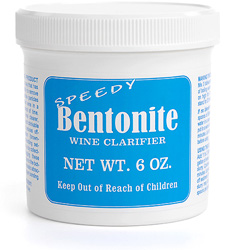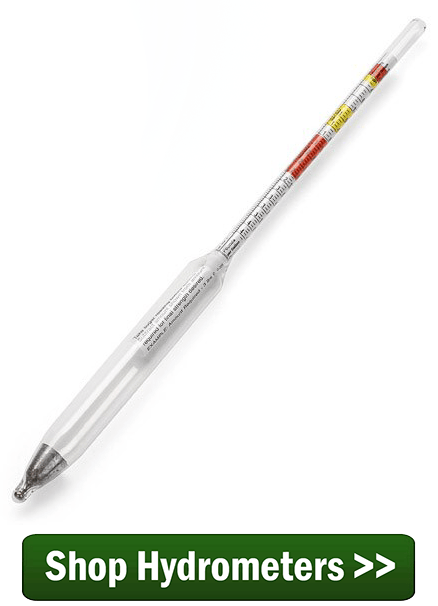 I’m really pleased with your service, but need some advice. Last year I produced about 13 gal. of blackberry wine with 13% alcohol with pretty good taste. Problem–not as clear as would like. I’ve used pectic enzymes, sparkolloid and the diatase enzymes. Would like your recommendation on further clearing.
I’m really pleased with your service, but need some advice. Last year I produced about 13 gal. of blackberry wine with 13% alcohol with pretty good taste. Problem–not as clear as would like. I’ve used pectic enzymes, sparkolloid and the diatase enzymes. Would like your recommendation on further clearing.
Thanks
Patrick J.
——
Hello Patrick,
Sorry to hear that your wine is not clear up all the way.
Usually when we see a situation like this in spring or early summer it is because the fermentation never did complete. In other words, the cloudiness is actually being caused by a slight resurgence of fermentation activity. The yeast went dormant during the cold winter months. But now, since things are warming up again, the yeast are starting to become active – just enough to cause the little bit of cloudiness you are experiencing.
If this is the situation, no wine finings will be able to clear a wine. The fermentation has to be allowed time to finish fermenting all the sugars.
One way to know if a renewed fermentation is what’s causing this cloudiness is to take a reading with a wine hydrometer to see if there are still sugars in the wine that could be causing a slight fermentation. This slight fermentation would most likely be too minor to detect by observing an air-lock, so using a hydrometer is the best way to determine this.
If you believe that there might be a fermentation going on, then your most practical course of action is to allow the wine to ferment until it is done. You can encourage the fermentation by adding a dose of yeast nutrient to the wine and by making sure the temperature stays between 70° and 75°F. Wine yeast is very sensitive to temperature.
If the wine hydrometer indicates that there are no sugars still in the wine, then we need to think about what wine making materials would best clear up the wine. If you have the book, First Steps In Winemaking, the author suggests using a bentonite fining, and I would tend to agree, particularly in the situation.
There are two reasons for this:
- Bentonite is good at clearing what Sparkolloid misses. So much so that some wineries will automatically use one then the other. Since you’ve already used Sparkolloid with limited success, it would only make sense to try its opposite.
- Bentonite is good at clearing excess proteins from a wine, including tannins. Sometimes when you have a wine that isn’t brilliantly clear at this late stage it is due to excessive tannin dropping or precipitating out of the wine. As a side note, warmer temperatures can induce this reaction as well.
Patrick, I hope this gives you some idea as to why your wine is not clear up all the way.
Happy Wine Making,
Ed Kraus
———————————–
Ed Kraus is a 3rd generation home brewer/winemaker and has been an owner of E. C. Kraus since 1999. He has been helping individuals make better wine and beer for over 25 years.

If using other fining agents, such as, PVPP and/or Potassium Caseinate, should I continue stirring after it appears to have all settled to bottom of carboy and yet wine is still not clear? I’ve treated this batch two times, first using PVPP, which cleared a little, then a round of Caseinate, again it cleared a little more, now I’m treating for a third time, but this time I’ve stirred when I first introduced the fining agent, and I have stirred it twice at 24 or so hour intervals since dosing it.
Am I correct to stir it or am I making a mistake doing so?
This is my first year trying fining agents to remove the browning in my Riesling.
Michael, I will say if your goal is to reduce the browning of you wine, the PVPP method is your best option. Continuing to stir the PVPP is fine, however, once it has been saturated you might not notice any additional change in the color. I am sorry; we do not have much information regarding stirring the Potassium Caseinate. If you are looking to clarify the wine in addition to the color issue, we would recommend using Bentonite.
When adding wine conditioner at bottling time, how many Camden tablets do I add per gallon?
Bill, whether you add wine conditioner or not, the dosage is one campden tablet per gallon of wine.
How much Bentonite per gallon for clearing of wine?
Bill, the directions for our Bentonite call for you to add 1 to 2 tablespoons of the slurry mixture for each gallon of wine.